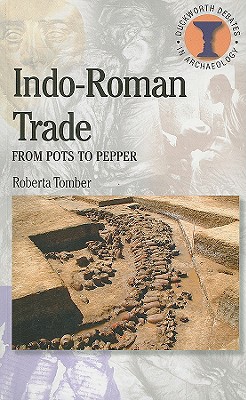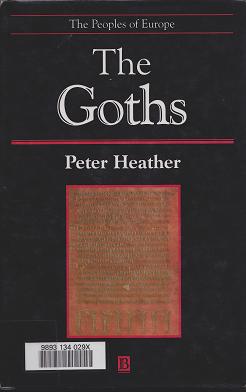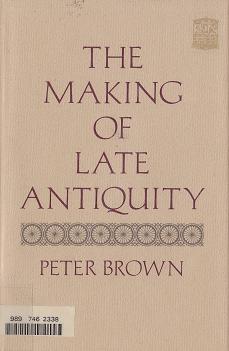- The Westminster child abuse ‘coverup’: how much did MPs know? | Politics | The Guardian – Another day, another set of shocking headlines about allegations of historical child abuse and high-level coverups, this time a dossier being handed over by the Metropolitan police themselves to the Independent Police Complaints Commission to examine 14 allegations of Scotland Yard’s own complicity in the alleged coverup of a high-level paedophile ring.
- On the “dispute” between radical feminism and trans people – In a world where left-wing politics has often derided LGBT identities as “bourgeois” and then accused us of splitting the movement, it infuriates me that I’ve had to take a break from writing a piece on the Tories’ “liberation” of the NHS to write 8,500 words to debunk a sexological concept that was shown to be untenable before the start of the First World War.
- Featured news – Skeletons uncovered at Ipplepen reveals major Roman cemetery – University of Exeter – The significance of the discovery took on further importance when one of the skeletons was found to date from around 250 to 350 years after the Roman period, an era often referred to as the ‘dark ages’. These discoveries are of both national and regional value in providing a glimpse into Romano-British life and how the settlement continued into post-Roman times.
- Minister-President over discriminatie: oplossing ligt bij slachtoffers – "Eén van de dingen die ik [van leerlingen] leer, is hoe ingrijpend discriminatie is. Dat het in Nederland nog veel voorkomt en het echt uitmaakt of je Mohammed of Jan heet als je solliciteert. Ik heb daar over nagedacht en ben tot de conclusie gekomen dat ik dit niet kan oplossen. De paradox is dat de oplossing bij Mohammed ligt. Ik kan tegen Nederland zeggen: ‘discrimineer aub niet, beoordeel iemand op karakter en kennis.’ Maar als het wel gebeurt, heeft Mohammed de keus: afhaken wegens belediging of doorgaan. Nieuwkomers hebben zich altijd moeten aanpassen, en altijd te maken gehad met vooroordelen en discriminatie. Je moet je invechten."
- Who wants to be a millionaire? Peter Oborne on Tony Blair – But Tony Blair has made a fortune. A J P Taylor, in his masterpiece English History 1914-45, noted that Lloyd George was the first prime minister since Walpole to leave office considerably richer than when he entered it. Blair falls into the tradition of Walpole and Lloyd George (though his exploitation of the office of prime minister came after he left Downing Street).
- Malaysian SFF writers and projects: a directory | Zen Cho – I’ve been conscious for a while that I’m no longer able to keep up the list of Malaysian SFF writers in English that I put up awhile ago — because I’m busy, but also because there are more of us than ever! I think it is helpful to have a directory for interested readers and people who want to connect with other local writers, but it needs to be updated regularly if it’s to be of use.
- Google Bullies, Censors MintPress & AntiWar.com Over Abu Ghraib Photos – On March 12 Google AdSense contacted MintPress News threatening to disable our Google Ads if we did not remove gruesome and now infamous photos of American soldiers torturing Iraqis in the Abu Ghraib prison.
- Miwa Hirono: my Home Office hell | Opinion | Times Higher Education – Because of this policy, I am now forced to quit my permanent position at the University of Nottingham after six and a half years of dedication and contribution to the university and to the wider policy and scholarly communities. My family and I will be removed from this country as of next Sunday.
- Student political protest is under threat, not free speech | Comment is free | The Guardian – We are deeply concerned about the letter “We cannot allow individuals to be censored and silenced” on 15 February, which contained serious inaccuracies. For example, neither Kate Smurthwaite nor Germaine Greer were no-platformed; poor ticket sales were a factor in the cancellation of Smurthwaite’s show and Greer’s talk went ahead.
- We cannot allow censorship and silencing of individuals | letters | World news | The Observer –
- What is Twine? (For Developers) | Liz England –
Articles with the Tag Rome
Indo-Roman Trade — Roberta Tomber

Indo-Roman Trade
Roberta Tomber
216 pages including index
published in 2008
Indo-Roman Trade: From Pots to Pepper is less a history book than an overview of the state of archaeological evidence for trade between the Roman Empire and the Indian subcontinent. It’s short and very much a synopsis; I think for serious students of this subject much of the value lies in the extensive bibliography at the back. For me, it’s one of those books you take a punt on at the local library, which also leaves you wondering why it’s there, lost amongst a sea of pop history books.
I didn’t know much about Indo-Roman trade going into this book, other than vaguely knowing that the Roman Empire was aware to some extent of India as a country, if only through Alexander the Great’s campaigns there. What Roberta Tromper maked clear to me was how extensive the trade was, in both directions, with pepper from India becoming somewhat of a staple in the kitchens of well to do Romans, while Roman wine travelled the other way. It’s not just India Roman traders went to: they all along the Indian Ocean, from Ethiopia and Somalia to Sri Lanka and Arabia. This trade between at least the first century BCE and seventh century CE, though the Romans were of course not the first westerners to reach the Indian Ocean.
The Goths — Peter Heather

The Goths
Peter Heather
358 pages including index
published in 1996
Most of Peter Heather’s professional output has, in one way or another, featured the Goths. Usually this has been in the context of their contribution to the fall of the Roman Empire in the west, which Heather has long argued they played a central role in. In The Goths his focus is slightly different, more concerned with the Goths themselves than with how they interacted with the Roman Empire, though that still of course is an important part of their story. The Goths is an entry in the Blackwell series The Peoples of Europe and is meant as a one volume overview of their entire history, for people largely unfamiliar with them. As Heather mentions in his introduction, the last book to attempt this was published in 1888, so it was high time for an update.
Heather’s divides his book in three main parts, preceded by an introductionary chapter. In this he discusses why the Goths were important and the problem of social identities, where the old assumptions of unchanging peoples recognisable by some checklist of unique features had been challenged in the 1950ties and 60ties by new research showing how individuals could change their identity when advantageous. Heather applies a synthesis of these approaches to the Goths, arguing that while there was such a thing as a Gothic group identity, it was fluid enough for non-Goths to join into and for the group as a whole to adapt to changing circumstances. He then goes on to first explore the origins of the Goths, thentheir invasion and defeat of the East Roman Empire and further wanderings through the Balkans into Italy and Gaul and finally looks at the history of the two Gothish kingdoms established on parts of the Western Empire. In all three parts Heather puts the search for Gothish identity central.
The Making of Late Antiquity – Peter Brown

The Making of Late Antiquity
Peter Brown
135 pages including index
published in 1978
Peter Brown is the historian who popularised the idea of Late Antiquity as a transitional period between classic antiquity and the early Middle Ages, with the emphasis on the continuity between Rome and the Middle Ages, rather than on the collapse of the western Roman Empire. Brown first publicised his theories in The World of Late Antiquity; this isn’t that book, but was the closest to it I could get. The Making of Late Antiquity is based on a series of lectures Brown gave at Harvard University in 1976 and focuses on the transformation of Roman society between the second and fourth centuries CE.
A topic which is of course closely connected to the political and economic turmoil which the Roman Empire was subjected to in that period, with civil wars, “barbarian” invasions and a resurgent Persia, but you wouldn’t know it from this book. Brown concentrates on the inner lives of the Romans and ignores politics. This alone makes it an odd bedfellow with the other histories I’ve reading about this period, but Brown’s writing style makes it even odder. His writing is very oldfashioned, almost nineteenth century like, sometimes hard to come to grips with. The combination of inner focus and his writing style made this book fussy and a bit prissy, at least to me.
Justinian: Threat or Menace?
I still own Chris Y. an answer to his comments about James J. O’Donnell’s The Ruin of the Roman Empire
Hmm… Haven’t read O’Donnell’s book yet- I shall get it got for me for Christmas- so take this with a pinch of salt, but I’m unconvinced, at least by your account, that Justinian could have done better if he’d stayed out of the west. Three points occur to me off the top of my head. Firstly, what is O’Donnell’s assessment of the impact of bubonic plague on the eastern empire during Justinian’s reign. It must have been hugely economically disruptive, even if we accept it wasn’t as bad as the 14th century outbreak. If we’re talking about conserving resources for later defense against eastern powers, the plague must have been a serious setback, western wars or no.
Secondly, the book I have read recently, this one, argues that the extent to which Romanitas was conserved in the west can be overstated. Wickham tries to use written and archaeological sources together, and he argues, powerfully to me at least, that the reduction in large scale trade brought about by the removal of the large scale state meant that economic activity in the west was quite different to how it had been during even the latest period of the western empire, with all the social and political consequences you would expect.
Thirdly, we have an example of what an emperor who took security on the eastern front as his priority could achieve in Heraclius, a couple of generations after Justinian. He faced an attack from Persia and won so decisively that the Sassanid state was effectively destroyed. The effect of that was that the Muslims were able to gave the Persian empire its coup de grace and then used their territories as a jumping off point to drive the Romans out of the middle east altogether. Could anything Justinian might have done prevented that? I’d be interested to hear an argument.
I’m not trying to denigrate O’Donnell’s work, which as I say I haven’t read yet, but I do think there’s an argument that in the long run Justinian’s western campaigns were pretty much irrelevant to the larger outcome.
Thoughts?
A couple of good points there. Now O’Donnell’s focus is firmly on the Western Empire, so he doesn’t go into too much detail about anything happening in the East other than how developments there impact on the west. He mentions the plague for example, but only in passing. O’Donnell is only interested in Justinian’s foreign policy so to speak, as well as the religious aspects of his rule, which does leaves some blind spots, the economic impact of the plague being one of them. It’s a weak spot in his thesis. But that doesn’t make it entirely invalid.
To tackle Chris’ third point first, the difference between Justinian and Heraclius is that the latter’s efforts were too late: the Roman and Persian Empires had exhausted each other with centuries of (intermittent) warfare and once a new “barbarian” challenge arouse with the Islamic jihad coming out of Arabia neither was strong enough to withstand it. Had Justinian been able and/or willing to have done the same, it would’ve given the East Roman Empire enough time to recover to perhaps have been able to beat the Arabian tribes. What’s more, one of the reasons that Islam could conquer the Middle Eastern provinces of the empire according to O’Donnell was the distance between the official Byzantine Christianity and the indigenous forms of it that flourish in Syria, Egypt and the other provinces. For the Coptic Church or the Nestorites rule of Islam was no worse than rule by Byzantium, sometimes even preferable as the former had less interest in hassling them.
On the economic side of things, O’Donnell’s beef with Justinian is that his western campaigns impoverished the Eastern Empire for little gain. As Chris notes in his second point, while the collapse of the Roman Empire is overrated, the fragmentation of it into its succesor states did mean a scaling down in trade, if only because traditional trading regions were now separate states… The western parts of the old Roman Empire had always been less wealthy than its eastern core, something that only became worse after the collapse. The wars themselves didn’t help either, depressing the economies of Italy and the other reconquered parts of the western Empire even further. All of which according to O’Donnell explains why the emperor started his reign with a surplus but ended it far in deficit. And Justinian set the trend for his succesors, trying to keep and expand their western holdings, when they did not have the resources to pursue both these goals and keep the Eastern Empire safe.
Could the Roman Empire have survived for longer had Justinian stayed east? It’s hard to say, but it might have left the east, the Byzantium part of it in better shape to survive the coming of Islam. In the west, had Justinian not invaded Italy, the Ostrogothic remnant empire there as founded by Theodoric, may have coalesed into something more akin to the Frankish kingdom — every historian so far I’ve read about Theodoric and his succesors have stressed that their was no reason to assume this could not have happened had the Ostrogoths been left alone. As I said in my original post, I’m certainly not entirely convinced by O’Donnell, but found that his greatest value lay in getting a fresh point of view on some familiar events.